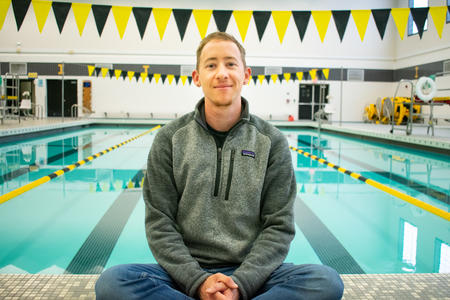Sometimes even the smartest people have a hard time recognizing change. Doug MacDonald is one of our state'ês foremost experts on transportation, but his recent article in Crosscut completely misses the new transportation reality: the war is over and the rail zealots have won. But with most of the old debates now over, one big question remains: Will we complete the freeway grid in the urban core, and if so, how will we pay for it?
MacDonald'ês main argument is that the Puget Sound region needs a comprehensive, multi-modal transportation plan that addresses funding and a new form of governance. We have heard this argument for years, and maybe MacDonald and others were right. The problem, however, is that the voters have just effectively ended this debate. Voter approval of Proposition 1 in November committed the region to building 55 more miles of light rail and another expansion of Sound Transit's express regional bus service. Like the outcome or not, the great light rail debate is finally over (after 40 years). We are going to spend at least the next 15 years building the rail system that proponents have always wanted. With voter approval and the sale of bonds, Sound Transit light rail is on a path that can'êt be stopped.
Sound Transit'ês victory also effectively ends the already anemic debate over governance. The only real energy behind the push for a new region-wide transportation agency was a desire by rail critics to stop the Sound Transit Board from getting light rail approved. The state is never going to give up authority over state highways, so what is the point now of a bruising debate over governance of what'ês left?
Meanwhile, through our a la carte non-process a de facto plan has emerged. Sound Transit will build a light rail system up the spine of the urban core and over Lake Washington, and will operate regional bus service. King, Pierce, and Snohomish counties will operate local bus service that will, in part, feed the rail system. The state will continue to govern the freeways, while counties and cities will continue to build local roads. The Puget Sound Regional Council and our various local regional committees will provide rough coordination of the various systems. Like it or not, that'ês the plan.
But there's a missing link. While transit is fully funded, there is no plan in place to fund the mega-projects needed to complete the freeway system in the urban core. Does anyone still care?
As I argued here in a 2007 article, the region needs to expand the general purpose capacity of its freeway system. Our leaders recognized that when they put the roads and transit package on the ballot in 2007. The roads package, developed by the now-extinct Regional Transportation Improvement District (RTID) would have, among other things, widened 405 and Hwy 167, linked Hwy 509 with a widened I-5, and funded the new 520 bridge. When the roads and transit plan failed, the Sound Transit Board rescued the transit piece and put it back on the ballot, where it passed by a surprisingly large margin last fall. The roads package, however, has become a political orphan, with seemingly no champion.
Gov. Chris Gregoire supported the RTID plan, but now only seems interested in the Alaskan Way Viaduct and 520. The business community still supports the RTID projects, but certainly isn'êt pushing very hard for them, at least not this legislative session. Many greens and liberals will oppose anything that might lead to more cars on the road, and no one right now seems willing to challenge them openly.
If the political will does emerge to revive the RTID projects, how will we pay for them? The gas tax is a declining revenue source, and voters despise the motor vehicle excise tax, which is why we needed RTID in the first place. Tolls on individual projects don'êt produce enough revenue, and they are a political battle to get enacted. That leaves two options: region-wide tolling perhaps based on miles traveled; or the option advanced by Dino Rossi in his governor's race, dedication of a small portion of the general fund to transportation.
This problem goes beyond the unfunded RTID projects in central Puget Sound. There are numerous projects across the state that lack funding, including mega projects like the north-south highway in Spokane, and a new bridge over the Columbia River.
Doug MacDonald's arguments notwithstanding, we don'êt need another endless wide-ranging debate about transportation planning and governance. But we do need to get serious about the specific problem of funding the highway projects we have already agreed are needed. Do that and we really will have a complete transportation blueprint for the future.



